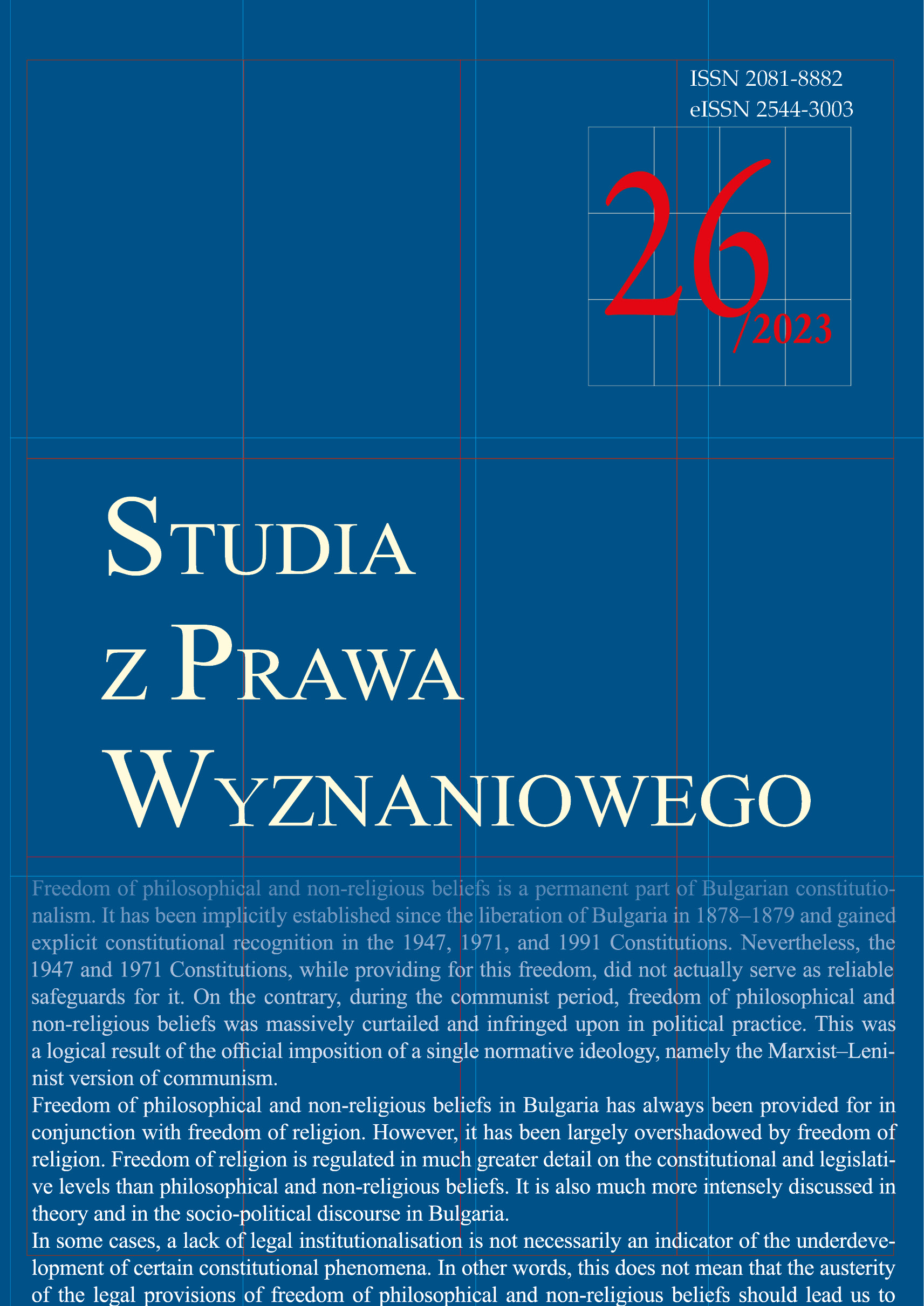Zakres podmiotowy i przedmiotowy kościelnych regulacji dotyczących ochrony danych osobowych. Glosa do postanowienia Wyższego Sądu Krajowego w Hamm z dnia 23 września 2022 roku, 26 W 6/22
Subjective and objective scope of church data protection regulations: Gloss on the order of the Higher Regional Court of Hamm of 23 September 2022, 26 W 6/22
Author(s): Bernard ŁukańkoSubject(s): Constitutional Law, Civil Law, Human Rights and Humanitarian Law, Court case, Administrative Law, Labour and Social Security Law
Published by: Katolicki Uniwersytet Lubelski Jana Pawła II
Keywords: RODO; ochrona danych osobowych; kościelna osoba prawna; szpital; GDPR; personal data protection; church legal entity; hospital
Summary/Abstract: This paper presents an analysis of the order of the Higher Regional Court of Hamm, dated 23 September 2022 (26 W 6/22), and the preceding order in the first instance issued by the Siegen District Court, dated 26 November 2021 (2 O 236/21), relating to the permissible subjective and objective scope of data protection legal acts enacted by churches. The author analysed the view of state courts regarding the admissibility of the application of church data protection regulations in church-run medical facilities, as well as in relation to the collection of church taxes. He has demonstrated that jurisprudence supports a broad subjective and objective scope of church regulations, which has a direct impact not only on the formation of specific rights of data subjects but also on the competence of supervisory authorities. The level of protection of personal data, comparable to that of the General Data Protection Regulation (GDPR), provided for in-church legal acts implementing the power of a church or another religious association, as set out in Article 91(1) GDPR, leads to the acceptance of a broad subjective and objective scope of these acts, which also affects the rights of non-members of the church or other religious organization concerned. The support for such a solution stems not only from the existing norms of constitutional law and Article 91 GDPR itself but also from the essential similarity of the key norms of the church data protection regulations to the solutions provided in the GDPR.
Journal: Studia z Prawa Wyznaniowego
- Issue Year: 2023
- Issue No: 26
- Page Range: 337-352
- Page Count: 16
- Language: Polish

